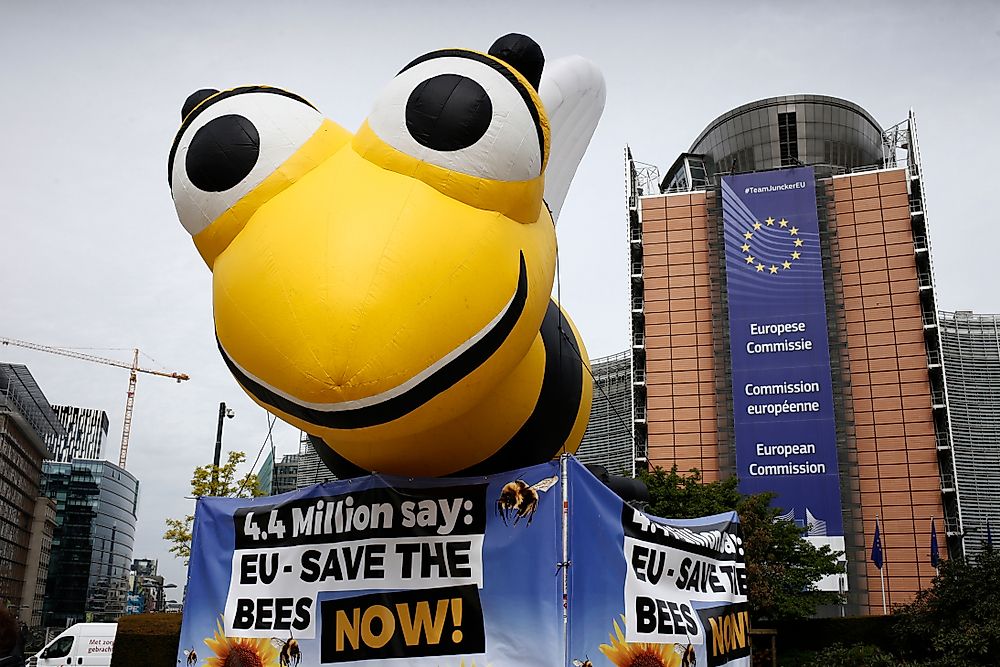EU Bans Bee-Harming Pesticides

With a large majority, the European Union voted for a total ban of three bee-harming pesticides on Friday, April 27, 2018.
The new ban builds on a previous ban from 2013 which restricted the use of three neonicotinoid insecticides—clothianidin, imidacloprid, and thiamethoxam—on bee-attractive crops such as maize, oilseed rape, and sunflower. Notable exceptions to the 2013 ban included their use on winter cereals, on crops after flowering, and in greenhouses. The new ban prohibits all outdoor usage of the neonicotinoid pesticides clothianidin, imidacloprid and thiamethoxam in the EU’s 28 member states.
The Effect of Neonicotinoids on Bees
The three neonicotinoid pesticides targeted by the ban are toxic to insects, affecting the central nervous system, disrupting learning and memory, and eventually resulting in paralysis and death. A scientific review conducted by the Pesticides Unit of the European Food Safety Authority showed that the outdoor usage of clothianidin, imidacloprid, and thiamethoxam poses a confirmed risk to bumblebees, solitary bees, and honeybees.
According to the European Red List of Bees, prepared by the International Union for Conservation of Nature (IUCN), 9.1% of bee species are considered threatened within the EU 27 (before the accession of Croatia to the EU). However, due to the number of species listed as data deficient, the true number of threatened bee species in the EU 27 could reach as high as 59.7%.
The Updated Neonicotinoids Ban
The ban prohibits all outdoor usage of the neonicotinoid pesticides clothianidin, imidacloprid, and thiamethoxam. Greenhouses, which pose a minimal risk for bee contact, are the only allowable continued usage of the above-mentioned pesticides.
The alarming drop in bee populations is concerning not only because of the risk of extinction in some bee species but also because bees play an important role in the environment and in food production. As bees are pollinators, declining bee populations will have a significant effect on crop production.
Neonicotinoids also pose other environmental risks, drifting outside of applied areas and contaminating both soil and water. They have also been linked to the decrease in butterflies, aquatic insects, and insect-eating birds.
The ban, set to kick in by the end of the year, is lauded by many scientists and environmental groups. Not everyone is happy, however. Agribusinesses Bayer Crop Science and Syngenta both expressed disappointment in the ban.
**
Kelly Bergevin is a writer and editor based in Montreal, Canada. She is an avid reader, coffee-drinker, and learner, and has recently turned her focus towards environmental issues and wildlife conservation efforts.











